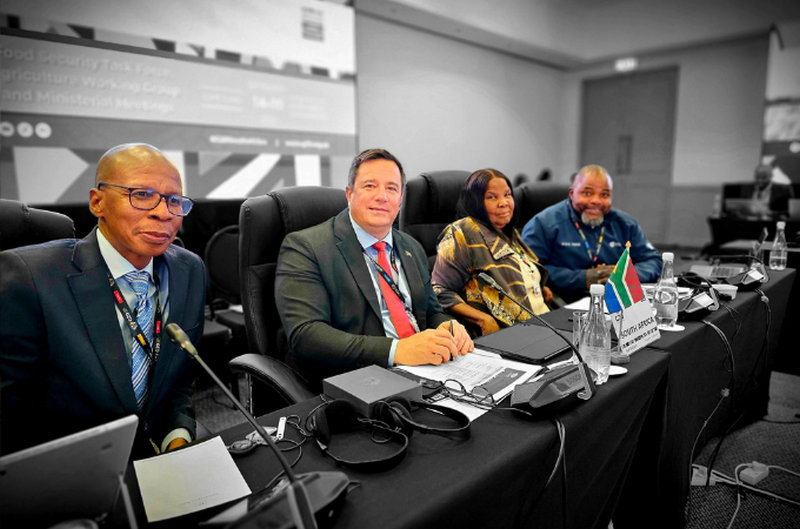The global agricultural sector took centre stage in September as G20 Agriculture Ministers, meeting in Somerset West, delivered a landmark Food Security Task Force Declaration rooted in the African philosophy of Ubuntu: “I am because you are.” This commitment, secured under the South African G20 Presidency, signals a major shift toward collaboration, placing the needs of smallholder farmers, climate resilience, and resilient trade at the core of global food governance.
The Ministerial Meeting of the G20 Agriculture Working Group and the Food Security Task Force (September 18-19) was defined by four strategic priorities for the sector: inclusive markets, empowering youth and women, fostering innovation, and building climate resilience.
Five Investment Initiatives
The most significant outcome for the agricultural industry was the unveiling of five joint initiatives designed to translate policy promises into bankable projects. These are dedicated investment tools aimed at closing the finance gap faced by farmers in the Global South:
- A Blended Finance Compact to unlock private capital for food system transformation.
- A Climate-Smart Insurance Facility to provide risk protection for farmers against increasing climate shocks.
- A Digital Trade Accelerator to simplify compliance and enhance market access for small and medium enterprises (SMEs).
- A Rural Energy Partnership for Cold Chains to reduce significant post-harvest losses through investments in renewable-powered storage and logistics.
- A Skills and Inclusion Deal specifically targeting youth and women, who are the backbone of agricultural labour yet face systemic barriers to finance and technology.
Minister of Agriculture, Mr. John Steenhuisen, emphasised that these agreements will assist farmers in stabilising markets and accessing nutritious food. Furthermore, the G20 formally committed to using transparent platforms like the Agricultural Market Information System (AMIS) to prevent excessive price volatility and food crises through reliable data.
Securing New Trade
The G20 was also a crucial platform for South Africa to strengthen trade resilience amid growing protectionism. Minister Steenhuisen had previously highlighted the sector’s strategic role in reversing the national trade deficit, noting that agricultural exports, despite resilience, are vulnerable to external shocks such as the 30% US tariff recently imposed on high-value exports.
In response, South Africa aggressively pursued trade diversification, leveraging the meetings to finalise two major bilateral pacts:
South Africa and Brazil signed a Memorandum of Intent (MoI) to boost agricultural cooperation, regenerative farming, and trade facilitation, building on an 80% growth in bilateral agricultural trade since 2020.
South Africa and Japan also signed an MoI focused on knowledge sharing for smallholder development, promoting high-quality trade, and ensuring stable grain supply—a critical move to open and expand Asian markets for local produce.
The commitments agreed in Cape Town—from the Ubuntu Declaration to the direct investment initiatives—will now be elevated to the G20 Leaders’ Summit in November, ensuring that the G20’s agricultural agenda delivers tangible prosperity, resilience, and sustainability for farmers and rural communities globally.
